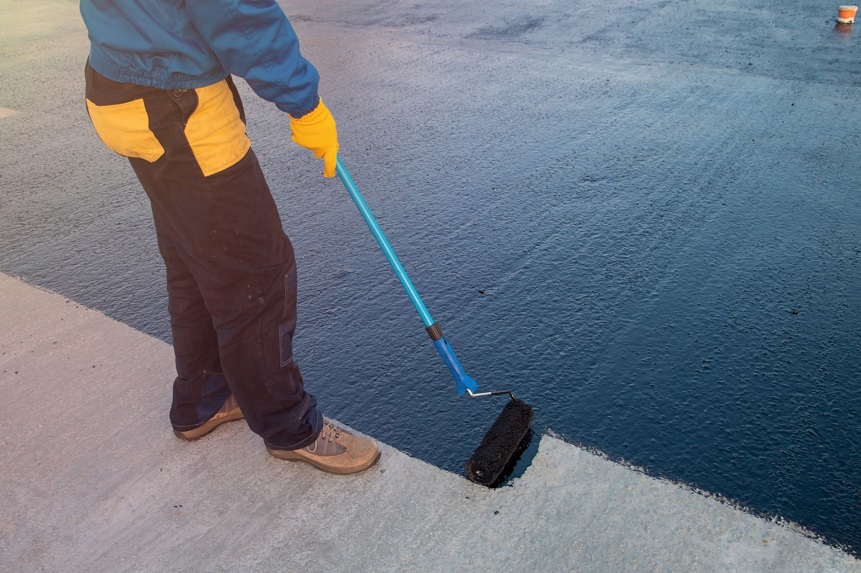
Roof Waterproofing: All You Need to Know
February 21st, 2023
Category: All Blogs, Roofing Solutions
What is Roof Waterproofing?
The treatment of the roof surface to prevent water passage under hydrostatic pressure by making the roof system resistant to the passage or entry of water through it is referred to as roof waterproofing. Water or other types of leaks are prevented from accessing the living spaces below by properly waterproofing the roof system.
Waterproofing membranes are used in traditional waterproofing systems. This often refers to layers of water-resistant materials such as bitumen, TVC, and so on that operate as a physical barrier to keep water out. This, however, is dependent on the appropriate application of the membrane; otherwise, water can still make its way through the building structure.
What is the Need for Roof Waterproofing?
The roof is one of the most common places where water damage occurs. Water damage worsens over time as it seeps into the roof system. Address your leaky roof issues as soon as possible to avoid further water damage.
– Continued leakage will erode concrete structural reinforcements. When water gets into the living rooms, it can harm the furniture, carpets, and appliances. Roofs are especially vulnerable to damage due to continual exposure to the elements.
– Furthermore, all building constructions, including RC flat roofs, require suitable waterproofing systems on their roofs because they cannot withstand water on their own.
How is it Done?
It is entirely feasible that a structure with inadequate roof water insulation would leak water when it rains or snows. Water pours into the building through leaks and dents in the roof, causing damage.
Roof insulation should be done by professionals who use the proper materials. Concrete should be waterproofed using roof waterproofing solutions before applying the coating, beveling the edges of the coating, installing drainage systems to prevent the creation of water puddles, and finishing with a suitable paint or coating substance as the top layer.
The Aspects that Make Waterproofing Worth it
The following are some of the most important advantages of roof waterproofing.
– Increases the Structure’s Durability
If left unchecked, moisture eats away at the strength of your structure. Investing in an excellent roof waterproofing system will extend its life.
– Repair Costs are Reduced
Roof waterproofing helps save money in the long run by lowering the expense of frequent repairs.
– Provides Energy Efficiency
Waterproofing methods not only cure leaking roofs but also provide excellent insulation. It is UV resistant and decreases the temperature by 8 degrees Celsius. As a result, it saves you money on utility bills by lowering your air conditioning costs.
– Prevents the Development of Health Issues
Water seepage through the roof reaches various portions of your structure, causing mold and mildew to grow and affecting the quality of the indoor air. As a result, the residents of the area may experience a variety of health issues, including wheezing, eye infection, breathing problems, coughing, and skin irritation, to mention a few. Getting roof waterproofing prevents the beginning of the aforementioned health issues.
– Increases the Lifespan of Interior Design and Furniture
When water penetrates your walls, mold, and mildew growth, gradually destroying the beauty of your interiors if left untreated. Waterproofing your roof can extend the life of your interior design and furniture.
Summing it up
You may need to visit an experienced contractor, such as Dura Roof, who can assist you in selecting the best waterproofing option for your needs.
Dura Roof offers a variety of roof waterproofing solutions that provide excellent bonding strength and homogeneous film thickness over the surface. One of the best aspects of these systems is that they do not require the breaking of any roofs.
Leave a Comment
